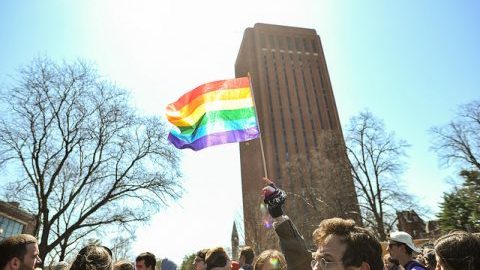As a whole, human beings generally possess a need to incessantly categorize and classify the people and things that surround them in daily life. Social constructs occupy a major role in defining what we as citizens of the world feel we must be doing with our time and what our neighbors should be doing as well. More often than not, it is easy for us to become disoriented when we cannot organize reality into neat little boxes, an attribute that depicts a human need for order and stability. It isn’t hard to notice these preconceived expectations in a vast array of areas, but it seems especially apparent if one studies how gender roles and sexuality stereotypes can cultivate utterly toxic social climates for those forced to yield to them.
In my personal life, I experience the effects of aesthetic ideals associated with the LGBTQ+ community almost daily. Unfortunately, even a group built on the principles of acceptance and tolerance can perpetuate harmful expectations for the way its members should look and act. The gay community has a tendency to partition individuals off into specific factions, each with their own names and categories of attributes.
As a gay man, if you appear youthful and thin, the expectation becomes that you remain thin—almost childlike. Bulkier men are expected to accentuate their masculinity more so than those who do not naturally fit this stereotype. A person’s weight and muscle density directly segregate them from others, leaving little room for one’s true humanity to exist at the forefront. Though these two examples merely represent parts of the whole, similar ideologies can be found should you choose to look close enough. In reality, body dysmorphia and eating disorders often plague those subjected to images of theoretical physical principals. I myself have felt the pressure to conform to certain standards of body ideals, which has truly led to a skewed perception of beauty in my own head.
The epidemic of toxic body standards obviously is not restricted to any particular sexuality or gender, but its effects sometimes disproportionally affect gay men. Stunningly, gay men have been found to have body image disturbances and eating disorder behavior at a rate much higher than those who identify as heterosexual. Gay men are thought to represent only five percent of the total male population but among men who have eating disorders, 42 percent identify as gay. Such distressing statistics exemplify the underlying negativity associated with the LGBTQ+ community’s propensity to participate in the categorization of human beings.
This behavior does not stop merely with men. Women who identify with the LGBTQ+ community are constantly presented with depictions of how they should look as well. Similar to the situation with gay men, homosexual women are often placed into a hierarchy based mainly on appearance. A close friend of mine often remarks that she faces criticism from other gay people due to the way she looks, often feeling as though she doesn’t measure up to what is expected of her in the community. These instances of believing we are inadequate are damaging to a person’s individuality, especially as we try to bury the attributes that make us who we are in hopes of gaining acceptance with those surrounding us. Failure to assimilate into your “given group” can lead to emotions of disappointment and misfortune, especially for people seeking friendship and guidance from those they hope to identify with.
Passive acceptance for the perpetuation of unrealistic stereotypes within the LGBTQ+ community must be denounced and terminated. With the rise of the internet effectively impacting entire generations of teenagers, we must all consider the detrimental repercussions of allowing entirely unreasonable beauty standards to infiltrate the consciousness of developing young adults. Promotion and encouragement of individuality must occupy the forefronts of our minds, not only for minority groups, but for the world as a whole. We must reject further segregating the human population; positive outcomes do not result as a product of polarizing the people we should support and care for. Let us not only accept one another, but also encourage personal growth outside of the neat boxes human beings so reflexively utilize to divide up our world.
Jake Russian is a Collegian columnist and can be reached at [email protected].



















